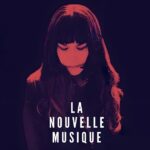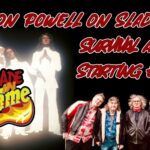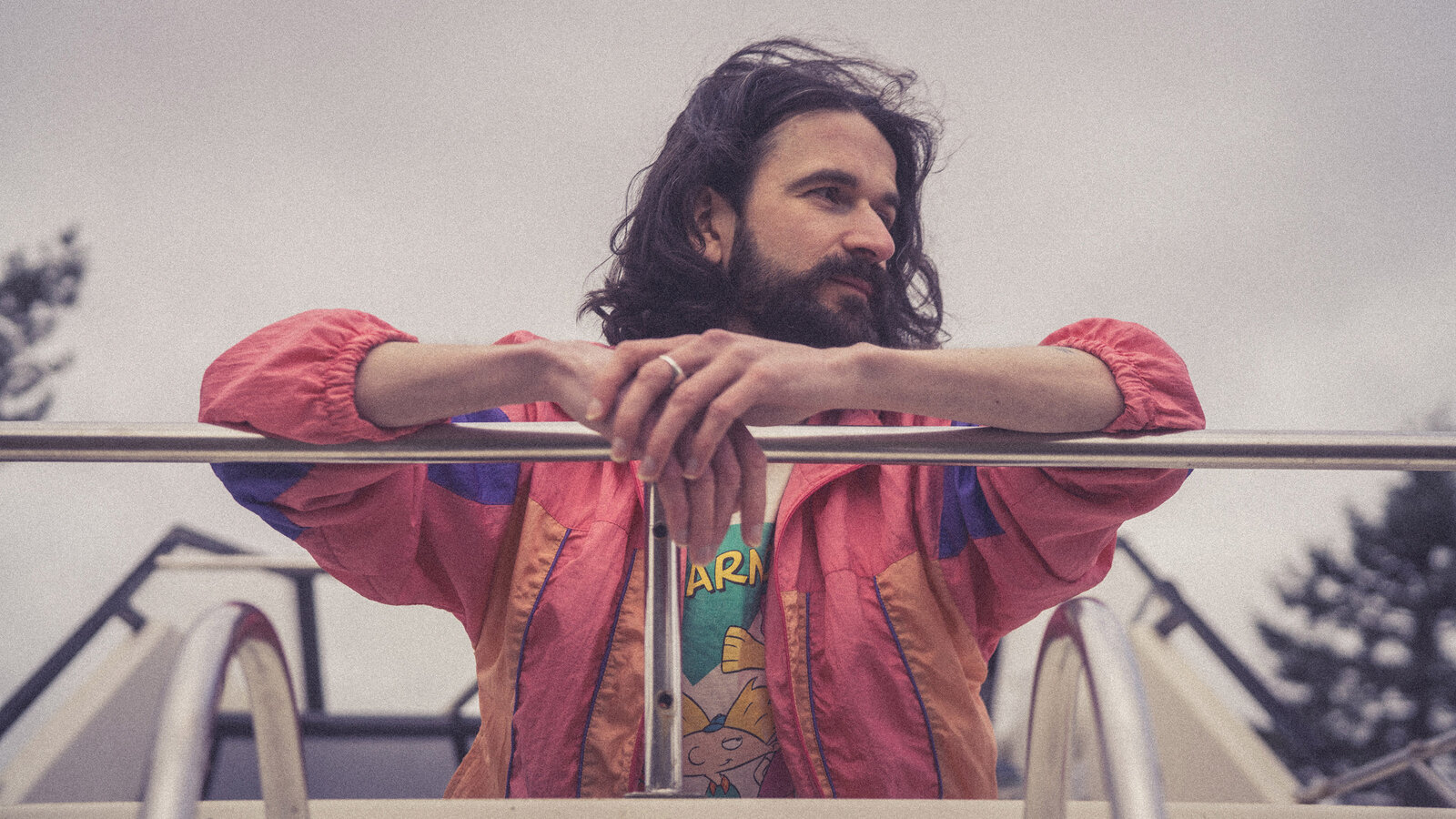
Gurry Wurry (Shot by Jess and Kieran Logan)
Dave King, the creative force behind the indie-psych-pop project Gurry Wurry, speaks to Jason Barnard about his eagerly anticipated new album ‘Happy For Now’. We cover the inspirations, collaborations, and creative processes that define his latest work, as well as exploring the unique atmosphere and themes of Gurry Wurry’s enchanting sound.
Can you tell us a bit about the inspiration behind the album and its title ‘Happy For Now’?
Yeah, I just had this real strong feeling of warmth and comfort last year. I think it was maybe a reaction to the relentless unease of the three years before – that and the fact I was getting a bit older and starting to understand myself. I actually felt younger than I had for my entire 20s. The happiest I’d been since I was 17. But I’ve done 37 loops of the planet now and I knew that sensation wouldn’t last long so I wanted to capture it. To make something warm and woozy. Something about letting go and savouring today’s happiness – even when you know it’ll all go pear-shaped soon enough. I’ve always had a little bit of a nihilist streak in me but I finally found a way to turn it into a positive. I genuinely thought it was going to be a super-upbeat album but the tunes came out a bit sadder than I expected.
The title popped into my head really early in the process and immediately felt like it just summed the whole idea up. I never had any other working titles, that one was there before a single song was finished.
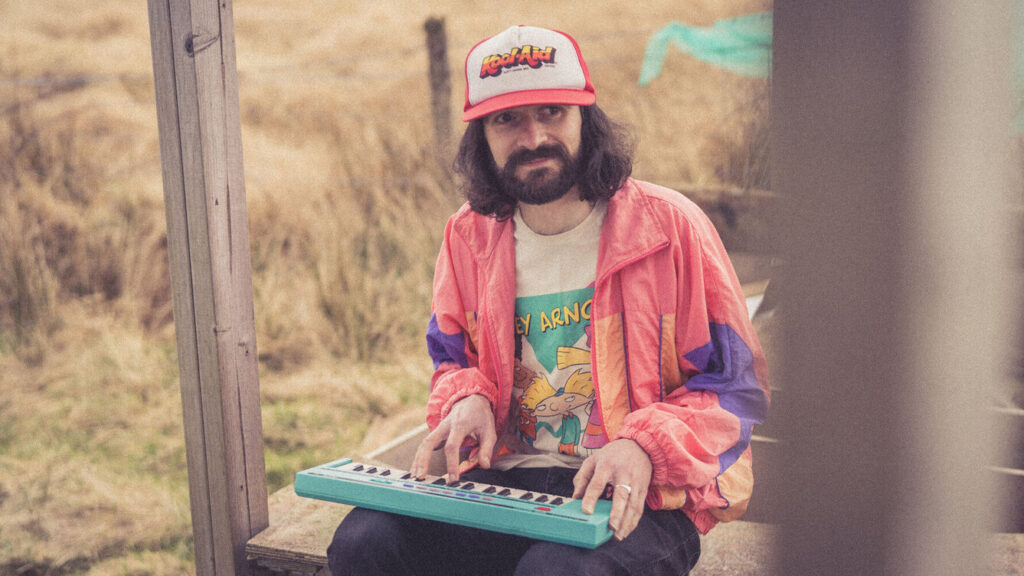
You worked with Rod Jones on this album. How did that collaboration come about, and what was it like working together?
I’m a big fan of Rod’s – Idlewild were big heroes of mine growing up – and I loved what he’d been doing with Hamish Hawk as his manager and producer. He has such a clean, tidy sound which felt like a perfect counterpoint for my messy, layered, dissonant tendencies. I always think you want collaborators that’ll challenge you with a different attitude, a different ear. If you’re all going to think and act the same you might as well just do it yourself.
I was super lucky that he was up for working together, and I got Creative Scotland funding to make it happen.
Working together was great. His studio’s only 10 minutes from my flat, and he’s a really chilled out guy so I really felt at ease on the mic. But in the run up it really forced me to try harder. I didn’t want to look daft in the studio so I spent every night for a month just practicing singing the tunes over and over and over again. It was December so I lost my mind a bit trying to avoid catching a cold. I barely left the house for 6 weeks, I was taking echinacea tablets, doing sinus rinses, drinking herbal tea. It was a mad time but it worked.
Creatively, he really changed how I thought my voice should sound. I’d always had a tendency to double-track my vocals and bury them quite low in the mix but he convinced me that their frailty was their strength and they should be super intimate, right up front in the mix. I was really nervous about it at first but I love it now. I definitely won’t be going back into hiding!
The album is described as an ode to caring less, or trying to. How did this theme emerge during the songwriting process?
Something I found myself doing a lot when I was writing these songs was trying to make the ugliest sound and put it right next to the prettiest sound. So on ‘Heart Against The Wall’ I had this really nice soft, vibey guitar part, but it just felt too ordinary. I was messing about and I just slotted in this horrible, clashing note before it and immediately loved it. For me the tension makes the release so much stronger. You can only really ‘let go’ if there’s tension there to start with. I then found myself doing it lyrically too. Trying to reel you in towards one feeling then sucker-punching with something else that totally undermines the sentiment of the last line. It started as an accident but giving in to that sort of constant uncertainty became quite addictive.
You’ve mentioned that ‘Happy For Now’ covers topics from car crashes to ageing and infidelity. How do you approach writing about such varied and often heavy subjects in a way that resonates with listeners?
I’m never sure what’s going to resonate with other people so I focus on what does it for me and for me it’s always about the feelings rather than the actual events. Like the car crash song is actually about that horrible feeling you get when you’re just enjoying your day and then you find out some crushing, life-changing bad news. You almost feel guilty that you were laughing 10 minutes ago, or ‘singing when the truck hit’.
And I think that sort of obsession with weird, complex emotions has naturally led me to write about uncomfortable things – because that’s where those emotions live!
‘Treason’ has been praised for its lush, hooky sound and introspective lyrics. Can you talk us through the creative process behind this single?
That one all started with the chord progression. I could hear this oompah rhythm in my head. Like a classic walking bassline but hitting all the wrong notes and twisting and turning between keys. Since it’s quite staccato I found that it didn’t actually need to follow the expected chord progression – the rhythm would hold it together. I worked it out on the piano and then started riffing over it and found you could almost have two melodies, in two different keys, working at the same time. That immediately made me think of a relationship that’s severed – with these melodies betraying each other while the rhythm just about holds them together. Then that marching beat made me think of an old military band which led me towards the idea of ‘Treason’ and that’s when it all started to make sense. It’s definitely the most challenging harmonically but then that’s infidelity isn’t it?
Your music often balances an upbeat vibe with underlying sadness. How do you achieve this delicate balance in your songs?
I think it’s all just borne out of a love for surprise in music. I love when music turns unexpected corners. Most of the music I listen to I’ve never heard before – I love hearing songs for the first time which is funny because I hate surprise in the rest of my life. I’m the most habitual man alive.
So I’ve got this deep aversion to being too ‘on the nose’ in my songs. I enjoy writing stuff that’s a little left field. Stuff that surprises me. So every time I sense I’m getting too sentimental I tend to say something crass, or throw in an ugly guitar riff. And likewise, when I feel like I’m getting too throwaway and lighthearted, I tend to chuck in a line that just pours my heart out. I think that juxtaposition allows me to be a bit more honest because I never feel too exposed. And it hopefully makes it easier for the listener to absorb too – you can choose to bob along with the sound, or to sink in a bit deeper to the meaning.
The single ‘Haunt Me’ has a seemingly humorous video that acts as a counterpoint to the theme of the music. Can you share some insights into the concept behind it?
So the song combines that horrible feeling when you’re home alone and you keep hearing noises, with that horrible feeling when your relationship has died and you keep thinking about what you could have been doing together.
In both instances, everyday mundane things somehow take on this huge significance. Like there’s definitely a murderer in the hallway. Or you’ll definitely never laugh again in your whole life.
Despite being horrible and scary and sad, they are both pretty silly. So I wanted to try and make a silly video that still had a little hint of sadness underneath it. The name ‘Haunt Me’ had made me think of the ghost sheet costume early-on, but it all came together when I had the idea of the ghost struggling to have fun. Seeing him try to get out of bed, tie his laces, make a cup of tea, do a hula hoop, play in the park. The everyday is so difficult when you’ve just been dumped and, as it happens, it’s pretty difficult when you’re covered head-to-toe in a bedsheet too.
‘Happy For Now’ is described as a half-dreamt world where a California breeze blows through the streets of Leith. Can you explain how you captured this unique atmosphere in the music highlighted in the tracks ‘Singin (When The Truck Hit)’ and ‘Hairline’?
Yeah there’s definitely a laidback, easy-going, 70s California feeling flowing through the music. Those thick, dead drums. The warm, crunchy electric pianos. The vocal harmonies. The comfortable tempo and gentle groove. But then it’s all laced with the dissonance of the modern day – the janky guitars, the bouncy synths, even the lyrics. Combining both sides made it all quite woozy, dream-like and a bit psychedelic.
Some of the songs came out particularly ethereal and dream-like. Like ‘Singin (When The Truck Hit)’. I think it’s because of the way the tempo changes up a few times as it pushes and pulls between a tight riff and a loose floating melody. And ‘Hairline’ has such a relaxed feel – like it’s all going in slightly slow motion. A mate described it as ‘post-surgery pop music’ which I quite liked.
You’ve been collecting records for the past 25 years. How has this extensive collection influenced your own music-making?
Oh man, it’s everything. That was the first thing Rod said when he heard the demos – ‘wow, there’s a lot of influences in here’. I’ve got a real pick ’n’ mix approach to listening to music and the same to making music. I’m constantly hearing things and wanting to try them out in a song. Whatever my favourite bit is of an album or a song, I never feel like it’s rooted in that genre. I always think it could work somewhere else and with something else. Like every musician in history is part of some giant supergroup striving towards this unreachable perfect album.
I’m constantly at car boot sales, record fairs, and record shops looking for the next thing – old or new.
The groove of Funkadelic, Fela Kuti and Allen Toussaint. The warmth of Colin Blunstone and Curtis Mayfield. The darkness and dissonance of Scott Walker, Tom Waits and Thelonious Monk. The gentleness of John Martyn. The spirituality of Sun Ra and Don Cherry. The hooks of The Beatles, The Bee Gees and Hall & Oates. The lyricism of Van Morrison, RAP Ferreira, and The Mountain Goats. The playfulness of The Beach Boys, Steely Dan, 10cc and The Avalanches.
Annette Peacock, Nick Drake, Mahalia Jackson, Joy Division, Radiohead, Springsteen, The Doors. I’ve also got some cracking old Pakistani Lollywood film scores, French chansons, African records, and a tonne of underground hip hop.
Man, my record collection is my favourite thing in the whole world. It’ll never be finished and I’ll never be bored of it.
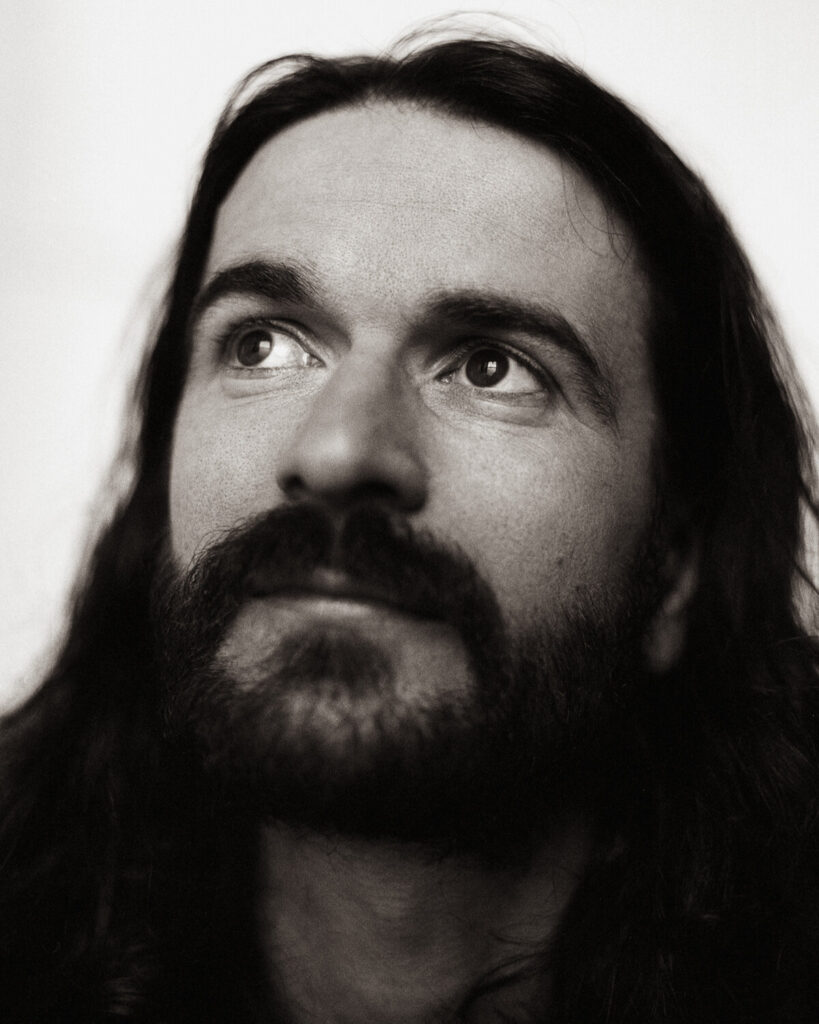
The term “gurry-wurry” is an old Scots term for a dog’s growl. Why did you choose this as your project name, and how does it reflect your music?
I was looking for something totally new that nobody else was using, but that could also represent the juxtaposition at the heart of what I do. Then I found ‘gurry-wurry’ and loved that it felt fun to say, it rhymes, but it also has a bit of anxiety in there in the ‘worry/wurry’ part. Then I liked the old meaning of a dog’s bark, a brawl or a big mess of people coming together – which felt like it reflected all of these musical styles and influences coming together.
In reality it’s just ended up with a lot of people thinking my name is Garry, but that’s life.
Your previous album ‘Not As Bad As It Sounds’ was critically acclaimed. What did you want to carry forward from that album into ‘Happy For Now’, and what did you want to do differently?
So I liked the overall vibe, the way the songs were all led by the keys so they had a certain groove to them, I liked the experimentation and I liked the weight of the lyrics. But I’d picked up a bit of confidence from the way it was received and I wanted to do things bigger and better second time around.
I felt like the ‘Happy For Now’ idea needed shorter, catchier songs with better hooks and a simpler, cleaner mix. A little less dense, a little more spacious sonically. And in that space I wanted to try out more challenging, dissonant harmony.
More challenging and more catchy in the same song wasn’t always easy. I wrote a lot more songs this time around – I had over 30 finished demos for this album before I got down to the final 11 tunes.
‘Happy For Now’ will be available on limited edition cassette, download, and streaming platforms. What influenced your decision to release the album on cassette, and what are your thoughts on the resurgence of physical media?
I love that resurgence and I hope it lives on. Music has always been physical for me. Sure, I use Spotify but I grew up taping the radio, buying CDs with my pocket money, and raiding my dad’s record collection. The artwork, the lyrics, the labels… there’s just something magical about having an album in your hand.
I’m an album guy and for me digital listening skews a bit too heavily on singles and playlists. I had to do a physical version for it to feel like a real album for me, and cassette was just the most accessible way for an independent artist to do that. And they look and feel great in your hand! There’ll be vinyl records one day but they’re just a little too pricey for now.
Do you have plans to play your new material live?
Absolutely, I’ve been gigging fairly regularly here in Scotland this year and I’ll be keeping that up. The songs are quite different live – I play solo with no backing tracks. Just vocals, keys and a drum machine controlled by a foot pedal. It’s quite nice re-exploring the songs in that stripped down way, and it keeps things spontaneous and properly live. Mistakes and all!
What are your plans for the future of Gurry Wurry?
I’ve already got 21 demos and a tentative title for album number three. I just want to keep making albums until I run out things to say. I might put a band together for the next one to keep things fresh. We’ll see.
Further information
Gurry Wurry’s 2nd LP, Happy For Now is released on 20 September 2024
Presave on streaming platforms
